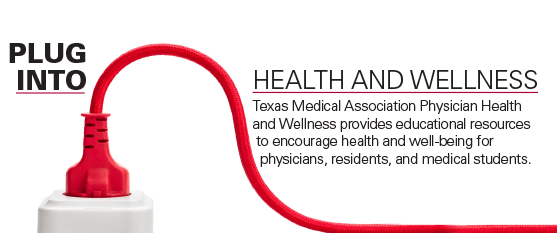
A list of toolkits, modules, scales, surveys, and inventories are provided below. (*) Proprietary
Resources, Toolkits, Statistics, and Surveys
Accreditation Council for Graduate Medical Education
American Academy of Family Physicians. We Made It Through Residency. Here's How You Can, Too.
American Medical Association. A Guide to Being a Good Coachee.
American Medical Association. Worksheet to Project Organizational Cost of Physician Burnout.
American Psychological Association. Psychology Topics.
American Psychological Association. Stress.American Medical Association
American Foundation for Suicide Prevention
Association of American Medical Colleges
Missouri Medicine. The Journal of the Missouri State Medical Association. Part II: Prevent Physician Burnout: 8 Ways to Lower Practice Stress and Get Home Sooner
National Suicide Prevention Lifeline
(800) 273-8255
National Academy of Medicine Clinician Well-Being Knowledge Hub
Patient Health Questionnaire-9 (PHQ-9)
SAMHSA National Help Line (for individuals and families facing mental and/or substance use disorders) (800) 662-HELP (4357)
Texas Physician Health Program
The Physicians Foundation Vital Signs. Suicide Prevention
University of Colorado Anschutz Medical Campus School of Medicine
Wisconsin Medical Society Physician Burnout Survey
Yale University. Resources for Student Wellness.
Top of page
Scales
Difficulties in Emotion Regulation Scale (DERS)
Inventory of College Students’ Recent Life Experiences (ICSRLE)*
Perceived Stress Scale
Lee Kum Sheung Center for Health and Happiness. Harvard T.H. Chan School of Public Health
Likert Scales
Professional Quality of Life Scale (ProQOL)
The Brief Self-Control Scale*
Consists of 13 items measuring self-control over thoughts, emotions, impulse control, performance regulation and habit breaking. Higher scores are indicative of better self-control.
The Moral Distress Scale – Revised*
21-item tool measures an individual’s perceptions to a situation based on (1) intensity of moral distress and (2) frequency of the encountered situation. It includes six parallel versions, of which three focus on the adult’s setting (nurses, physicians, and other health care professionals).
Zung Self-Rating Depression Scale and Scoring Sheet
Format 1
Format 2
Top of page
Inventories or Indexes
Beck’s Depression Inventory
Assesses depressive symptoms and levels; has strong psychometric support and performs well as a marker for severity and distress.
Interactive Screening Program (ISP) for Institutions of Higher Education
Interactive Screening Program (ISP) for Medical Schools, Hospitals, and Health Systems
Inventory of College Students’ Recent Life Experiences (ICSRLE)*
Perceived Stress Scale
Maslach Burnout Inventory*
Licensing
Research on alternative
Oldenburg Burnout Inventory (OLBI)
Well-Being Index*
Top of page
Toolkits
Agency for Healthcare Research and Quality (AHRQ)
American College of Obstetricians and Gynecologists Tools to Assess Wellness
American Medical Association
AMA STEPS Forward™
Behavioral Addiction Tools
Harvard Health Publishing Toolkits
Self-Care and Breathing Exercises
University of California, San Francisco. Measurement Toolbox. Stress Measurement Network
Texas Tech University Health Sciences Center. Meeting Well. A Tool for Planning Healthy Meetings and Events
University of Colorado Work and Well-Being Toolkit
Top of page
Surveys
American Medical Association. Mini-Z Burnout Survey*
American Medical Association. Physician Burnout Quiz
Campus Survey of Alcohol and Other Drug Norms
Core Institute Surveys (digital assessment forms)
Core Alcohol and Drug Survey
Long form
Short form
Hospital Survey on Patient Safety Culture
Measuring Second Victim Responses and Support Characteristics
Satisfaction Surveys
Top of page
Tests and Assessments
New Mexico School of Medicine Self-Assessment Resources
Stanford MD Test Yourself
Texas A&M Rural and Community Health Institute. KSTAR (Knowledge, Skills, Training, Assessment, Research) Physician Resources.
Top of page
Disclaimer: These links are being provided as a convenience and for informational purposes only; they do not constitute an endorsement or an approval by the Texas Medical Association of any of the products, services, or opinions of the corporation or organization or individual. TMA bears no responsibility for the accuracy, legality, or content of the external site or for that of subsequent links. Contact the external site for answers to questions regarding its content.
Top of page